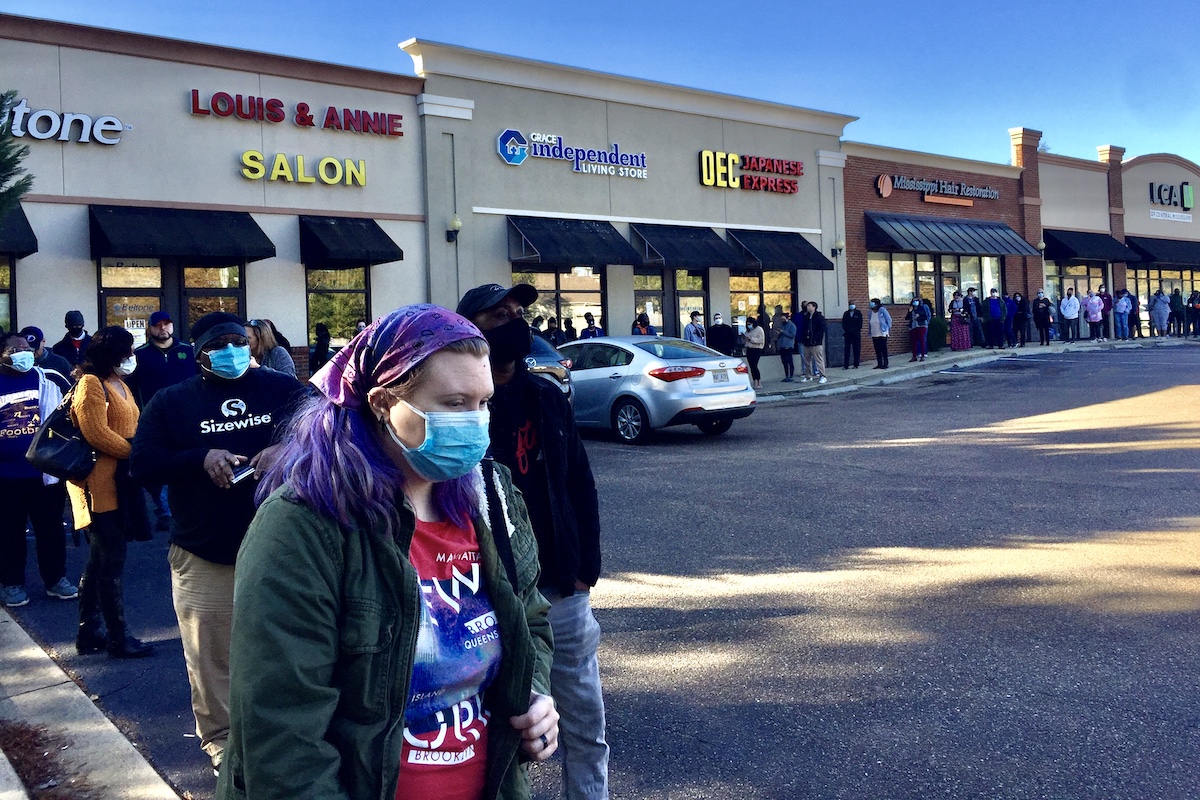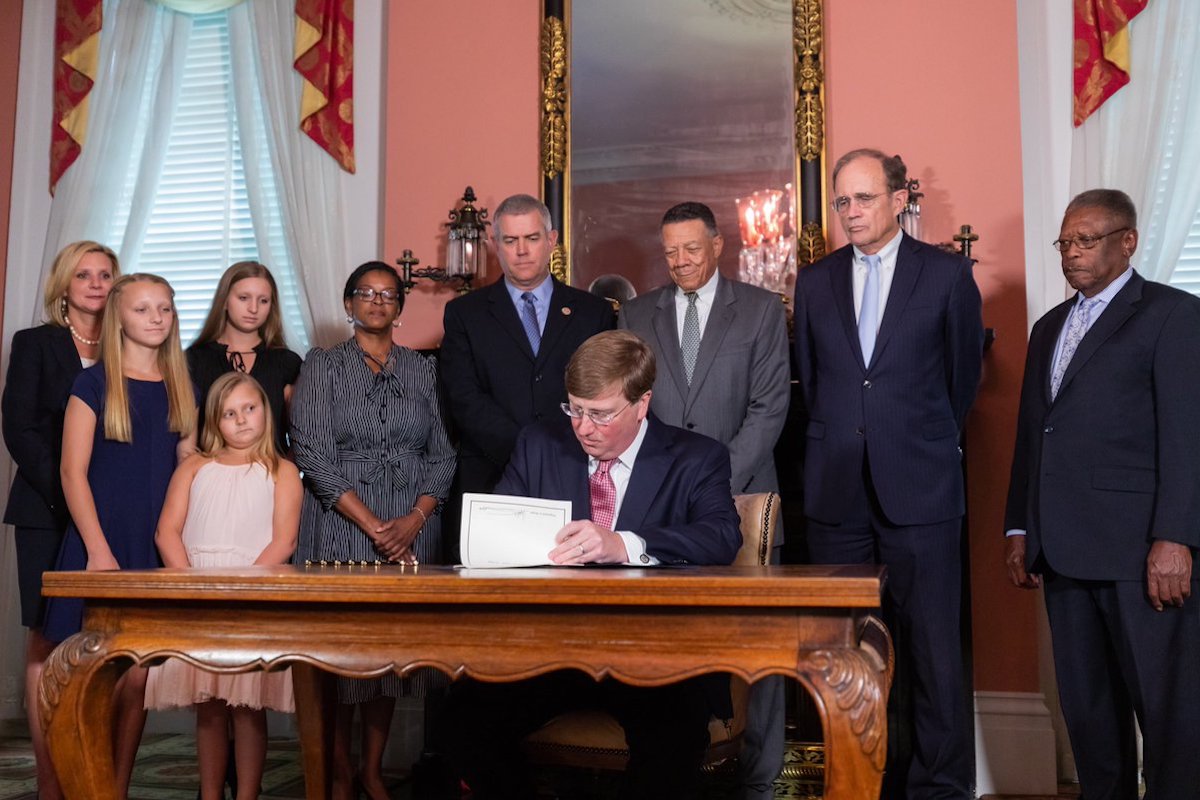It’s midnight again in Mississippi. Tonight, tens of thousands of Jackson residents finally have clean water, but still have no real answers about how city and state officials mismanaged their water supply so badly that they were recently left without clean water for prolonged periods of time. Nor do they have sufficient answers as to why state officials were reluctant to provide relief.
Perhaps NFL Hall of Famer Brett Favre has trouble sleeping tonight, overcome with shame over the fact that he still has not repaid more than half of the $1.1 million in state welfare funds he received in a massive embezzlement scheme involving the son of wrestler “Million Dollar Man” Ted DiBiase.
More than 1.1 million Mississippians resting their heads tonight voted last November to legalize medical marijuana; the Mississippi Supreme Court responded by nullifying the ballot measure and declaring the entire referendum process invalid. Writing for the majority opinion, Josiah Coleman, grandson of the segregationist governor J.P. Coleman, suggested that petitions for ballot initiatives could not have more than 20% of their signatures from any one of the state’s four congressional districts. Tonight, Mississippi’s education ranks in the bottom 10, but we still know that Coleman’s math doesn’t work.

Tonight, Gov. Tate Reeves rests easily, satisfied that with no ballot initiative process, the state has no hope of expanding Medicaid under the Affordable Care Act to grant health-care coverage to 200,000 Mississippians until at least after the next round of state elections in 2023. Reeves knows that if Medicaid expansion passes in Mississippi, Mississippians will view the years of Republican obstruction on the issue in a harsh new light. A nonprofit backed by the Mississippi Hospital Association, frustrated by years of legislative inaction, had recently launched a petition for a referendum when the Mississippi Supreme Court’s ruling came down.
Yes, Reeves sleeps well.
Making Voting ‘A Little More Difficult’
Secretary of State Michael Watson clearly has nightmares about Mississippi college students voting. Watson, who oversees the state’s elections, recently lamented that it would be easier for “woke college university students” to vote if the For the People Act became federal law.
That comment mirrors previous remarks of U.S. Sen. Cindy Hyde-Smith, who sleeps somewhere in the Beltway tonight. “And then they remind me that there’s a lot of liberal folks in those schools who maybe we don’t want to vote. Maybe we want to make it just a little more difficult. And I think that’s a great idea,” she said in 2018. But Watson and Hyde-Smith can both take comfort knowing that the Mississippi Supreme Court’s decision also killed a petition to install early voting in the state’s elections system, ensuring that Mississippi will maintain some of the lowest levels of voting access in the country.
They can also take comfort knowing that even Mississippi Democrats who are able to vote lie in bed tonight with a feeling of disenfranchisement. State legislative districts are so gerrymandered that while more than 40% of Mississippians vote as Democrats, they only make up 30% of the state Senate and 36% of the House of Representatives. The next round of redistricting will likely exacerbate that issue.

Allen Russell sleeps in a jail cell, as he will every night for the rest of his life, thanks to a Supreme Court decision to uphold a life sentence for possession of just over one ounce of marijuana. Russell previously pleaded guilty to two burglaries in 2004. At the time, burglary was not considered a violent crime in Mississippi. But 10 years later, lawmakers changed that, which meant that when he was sentenced for marijuana possession in 2019, prosecutors pointed to his history of “violent crime” to justify a life sentence.
Some Mississippians, out of work because of the COVID-19 pandemic, stare at their ceilings, wondering how they will be able to afford rent now that Gov. Reeves has announced the state will begin refusing federal unemployment subsidies. Reeves and other state leaders have made a big show of being pro-business, but they have done little to reach out to the workers who make business possible.
Outside Confederate Influence on State
The Confederate sympathizers across the state sleep well tonight. Oh, 2020 was a tumultuous year for them, as they saw their beloved stars and bars removed from the state flag. But they know that they still have outsized political influence in the state.
That is why Gov. Reeves declared April as “Confederate Heritage Month” and closed state offices for “Confederate Memorial Day,” keeping alive the long Mississippi tradition of whitewashing the horrors of the Confederate movement.
In fact, Sen. Hyde-Smith is one of our chief Confederate fetishists. As a state legislator she sponsored a resolution praising a Confederate soldier as someone who “fought to defend his homeland,” and tried to name a highway after Confederate President Jefferson Davis. In 2014, she posted to social media a picture of herself wearing a Confederate cap in the home of Davis with the caption, “Mississippi history at its best.” In 2016, she presented a community award to a pro-Confederacy group called the Dixie Alliance. And during her 2018 campaign against Mike Espy, who is Black, she joked about attending a lynching, a heinous act embedded in Mississippi memory.

Yes, the defenders of Mississippi’s legacy of white supremacy sleep well knowing that one of their own is representing them in the United States Senate.
But progress is on the horizon. Mississippians across the political spectrum have cried foul on the Mississippi Supreme Court’s decision regarding ballot initiatives. Reeves was no doubt happy with the decision because he seems to believe, as many of us believe, that most Mississippians want the sorts of policies that he is dedicated to fighting—the sorts of policies that can be passed through ballot initiatives, like medical marijuana, Medicaid expansion and early voting. It’s not a coincidence that the state with the largest share of Black people in the country has always held some of the most suppressive voting laws.
But more and more Mississippians are overcoming that suppression. And their voices are being heard. Last year, Mike Espy performed as well in his Senate race against Hyde-Smith in Mississippi as Jaime Harrison did in his South Carolina race against Lindsey Graham, despite far greater national support for Harrison. That is why more and more pundits are beginning to wonder if Mississippi could be the next Georgia.
Yes, it’s midnight again in Mississippi. But morning is coming.
This MFP Voices essay does not necessarily represent the views of the Mississippi Free Press, its staff or board members. To submit an essay for the MFP Voices section, send up to 1,200 words and factcheck information to azia@mississippifreepress.com. We welcome a wide variety of viewpoints.






